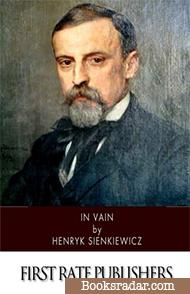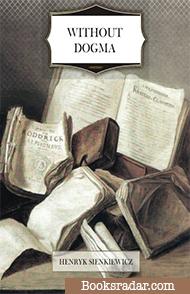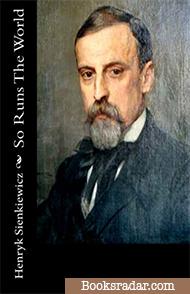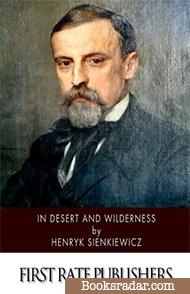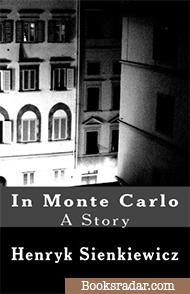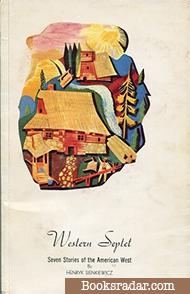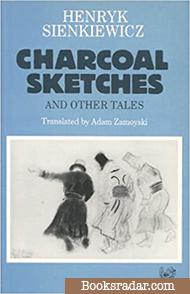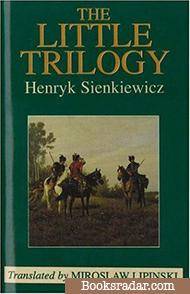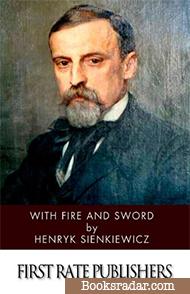Henryk Sienkiewicz books in order
Henryk Adam Aleksander Pius Sienkiewicz, or simply Henryk Sienkiewicz, was a famous Polish novelist, journalist, and Nobel Prize laureate.
Born in Wola Okrzejska, Poland, Sienkiewicz grew up during the revolutionary struggles for Polish independence, which is why patriotic components heavily feature in his work.
He discovered his passion for literature early on, and began by writing satirical works, betraying a strong social conscience.
Sienkiewicz traveled to America in 1876, and his escapades greatly inspired his works, most notably the short story Latarnik (1882) [The Lighthouse Keeper].
Upon returning to Poland, Sienkiewicz committed himself to historical studies and published his great trilogy about Poland: With Fire and Sword (1884), The Deluge (1886) and Pan Michael (1888).
His best work however remains Quo Vadis (1895), a book about the oppression of Christian persecutions during the era of Emperor Nero.
He was awarded The Nobel Prize in Literature 1905 due to his "outstanding merits as an epic writer."
Sienkiewicz died on 15 November 1916 at the age of 70.
Genre: Literary Fiction
Poland
Non Series
- In Vain (1872)
- Pan Michael: An Historical Novel of Poland, the Ukraine, and Turkey (1888)
- Without Dogma (1891)
- Quo Vadis? (1896)
- So Runs The World (1898)
- The Knights of the Cross (1900)
- On the Field of Glory: An Historical Novel of the Time of King John Sobieski (1906)
- In Desert and Wilderness (1911)
- Whirlpools: A Novel of Modern Poland (1911)
- Through the Desert (1912)
- The Teutonic Knights (1993)
- Dust and Ashes or Demolished (2002)
- In Monte Carlo (2002)
Collections
- Western Septet (1973)
- Charcoal Sketches and Other Tales (1990)
- For Daily Bread and Other Stories (2001)
- Lillian Morris and Other Stories (2002)
- Life and Death and Other Legends and Stories (2003)
- Yanko the Musician and Other Stories (2003)
Non-fiction
- Portrait of America: Letters of Henry Sienkiewicz (1959)
Omnibus Books
- The Little Trilogy (1995)
Polish Trilogy
- With Fire and Sword (1884)
- The Deluge (1886)
- Fire in the Steppe (1888)
Detailed book overview
Non Series
At a time when the state of Poland was constantly undergoing political turmoil, Henryk Sienkiewicz wasn’t afraid to ruffle feathers. Having already achieved success in his career around the end of the 19th century, the Polish journalist negatively portrayed the Teutonic Order at a time in which his audience lived under German rule.
At the same time, he meticulously included historical language in his works, a sort of celebration of authenticity and the past. He would earn a Nobel Prize in 1905 for "outstanding merits as an epic writer."
Sienkiewicz mastered historical novels that vividly put readers in places as distinct as 17th century Poland and Ancient Rome. He is still well regarded today for novels like "With Fire and Sword", "The Deluge", “Quo Vadis”, and "Fire in the Steppe".
First Release: 1872
ISBN: 978-1500883652
Publisher: CreateSpace Independent Publishing Platform
The great struggle begun by the Cossacks, and, after the victory at Korsun, continued by them and the Russian population of the Commonwealth, is described in "With Fire and Sword," from the ambush on the Omelnik[1] to the battle of Berestechko.
In "The Deluge" the Swedish invasion is the argument, and a mere reference is made to the war in which Moscow and the Ukraine are on one side and the Commonwealth on the other.
In "Pan Michael," the present volume and closing work of the trilogy, the invader is the Turk, whose forces, though victorious at Kamenyets, are defeated at Hotin.
First Release: 1888
ISBN: 978-1546620723
Publisher: CreateSpace Independent Publishing Platform
Readers of Henryk Sienkiewicz in America, who have known him only through Mr. Curtin's fine, strong translations, will be surprised to meet with a production so unlike "Fire and Sword" and "The Deluge" that on first reading one can scarcely believe it to be from the pen of the great novelist.
Even to those most unfamiliar with her history, it grows lifelike and real as it speaks to us from the pages of these historical romances. Only a very great genius can unearth the dusty chronicles of past centuries, and make its men and women live and breathe, and speak to us. These historical characters are not mere shadows, puppets, or nullities, but very real men and women, our own flesh and blood. His warriors fight, love, hate; they embrace each other; they laugh; they weep in each other's arms; give each other sage counsels, with a truly Homeric simplicity. They are deep-versed in stratagems of love and war, these Poles of the seventeenth century! They have their Nestor, their Agamemnon, their great Achilles sulking in his tent.
Oddly enough, at times they grow very familiar to us, and in spite of their Polish titles and faces, and a certain tenderness of nature that is almost feminine, they seem to have good, stout, Saxon stuff in them. Especially where the illustrious knights recount their heroic deeds there is a Falstaffian strut in their performance, and there runs riot a Falstaffian imagination truly sublime...
First Release: 1891
ISBN: 978-1406805611
Publisher: Echo Library
Quo Vadis: A Narrative of the Time of Nero, commonly known as Quo Vadis, is a historical novel written by Henryk Sienkiewicz. Quo vadis is Latin for "Where are you going?" and alludes to a New Testament verse (John 13:36). The verse, in the King James Version, reads as follows, "Simon Peter said unto him, Lord, whither goest thou? Jesus answered him, Whither I go, thou canst not follow me now; but thou shalt follow me afterwards."
Quo Vadis tells of a love that develops between a young Christian woman, Ligia (or Lygia), and Marcus Vinicius, a Roman patrician. It takes place in the city of Rome under the rule of emperor Nero around AD 64.
Sienkiewicz studied the Roman Empire extensively prior to writing the novel, with the aim of getting historical details correct. As such, several historical figures appear in the book. As a whole, the novel carries a powerful pro-Christian message.
Published in installments in three Polish dailies in 1895, it came out in book form in 1896 and has since been translated into more than 50 languages. This novel contributed to Sienkiewicz's Nobel Prize for literature in 1905.
Director: Jerzy Kawalerowicz
Cast: Paweł Deląg, Magdalena Mielcarz, Bogusław Linda
First Release: 1896
ISBN: 978-1088441695
Publisher: Independently published
This work has been selected by scholars as being culturally important and is part of the knowledge base of civilization as we know it.
This work is in the public domain in the United States of America, and possibly other nations. Within the United States, you may freely copy and distribute this work, as no entity (individual or corporate) has a copyright on the body of the work.
Scholars believe, and we concur, that this work is important enough to be preserved, reproduced, and made generally available to the public. To ensure a quality reading experience, this work has been proofread and republished using a format that seamlessly blends the original graphical elements with text in an easy-to-read typeface.
We appreciate your support of the preservation process, and thank you for being an important part of keeping this knowledge alive and relevant.
First Release: 1898
ISBN: 978-1406805604
Publisher: Echo Library
"The Knights of the Cross" (or "The Teutonic Knights"; Krzyżacy in Polish) is a 1900 historical novel, an epic of medieval times and national destiny, ranked as one of the highest achievements from the pen of Henryk Sienkiewicz, the Literature Nobel Prize winner in 1905.
"The Knights of the Cross" follows the adventures of Macko, a resourceful and wise veteran of war, and his young nephew, Zbyszko, the symbol of a maturing nation, as they struggle, along with the unified peoples of Poland and Lithuania, against the oppressive religious military Order (Knights of the Cross/Teutonic Knights). In a tavern inn Zbyszko falls in love with the lovely Danusia, who is traveling with the court of the Duchess Anna. He swears to her his knight's oath and promises to bring her 'three trophies' from the Teutonic Knights.
Regarded as the most outstanding and prolific Polish writer of the second half of the nineteenth century, Henryk Sienkiewicz is perhaps best known for his epic historical novel "Quo Vadis", which depicts early Christianity and the persecutions. Sienkiewicz was known for his gigantic scenes, bright contrasts and the epic sweep of his works. He was a master in creating mass-action scenes and battles.
First Release: 1900
ISBN: 978-1514143650
Publisher: CreateSpace Independent Publishing Platform
This work has been selected by scholars as being culturally important, and is part of the knowledge base of civilization as we know it. This work was reproduced from the original artifact, and remains as true to the original work as possible. Therefore, you will see the original copyright references, library stamps (as most of these works have been housed in our most important libraries around the world), and other notations in the work.
This work is in the public domain in the United States of America, and possibly other nations. Within the United States, you may freely copy and distribute this work, as no entity (individual or corporate) has a copyright on the body of the work.
As a reproduction of a historical artifact, this work may contain missing or blurred pages, poor pictures, errant marks, etc. Scholars believe, and we concur, that this work is important enough to be preserved, reproduced, and made generally available to the public. We appreciate your support of the preservation process, and thank you for being an important part of keeping this knowledge alive and relevant.
First Release: 1906
ISBN: 978-0530238760
Publisher: Wentworth Press
In the tradition of Robinson Crusoe and Treasure Island comes a Sienkiewicz novel for readers of all ages! This thrilling adventure saga and coming-of-age tale sets two young children, Stas Tarkowski, fourteen, and Nelly Rawlison, eight, within the reaches of Africa's desert storms, the ravages of hunger, and threatening jungles filled with vicious animals and warring tribes.
Everything for the pair seemed comfortable and safe in Egypt. But when the children are separated from their fathers during a vacation along the Nile, they become pawns in a treacherous plot and are abducted by the vengeful followers of the Mahdi.
Joined in their trek by two African children, Kali and Mea, and together with the aid of a faithful dog, Saba, and a mighty elephant, King, the unlikely troop makes its way through deep Africa while facing perilous situations that would render helpless even grown men and women.
Throughout this enthralling novel, author Sienkiewicz paints the vivid scenery of what was then known as "the dark continent," a land filled with unknown peoples, primordial landscapes, tall and deep jungles, uncharted rivers and mountains.
First Release: 1911
ISBN: 978-1505424522
Publisher: CreateSpace Independent Publishing Platform
Whirlpools, a social/political novel of modern Poland, began to appear in serialized form in 1909, and was published as a book in 1910. Known for their great narrative power and contain vivid characterizations, Sienkiewicz' work includes the great trilogy of historical novels With Fire and Sword (1884), The Deluge (1886), and Pan Michael (1887-88).
Henryk (Adam Alexander Pius) Sienkiewicz (1846-1916) was a Polish novelist. He studied at Warsaw, traveled in the United States, and in the 1870s began to write articles, short stories, and novels. His most widely known book is the story of Rome under Nero, Quo Vadis? (1896), several times filmed, notably in 1951 by Mervyn Le Roy (1900-87). He received the Nobel Prize for Literature in 1905.
First Release: 1911
ISBN: 978-1530094158
Publisher: CreateSpace Independent Publishing Platform
Krzyzacy tells the story of a young nobleman, Zbyszko of Bogdaniec, who together with his uncle Macko of Bogdaniec returns from the war against the Order (Knights of the Cross) in nearby Lithuania.
In a tavern inn Zbyszko falls in love with the lovely Danusia, who is traveling with the court of the Duchess Anna. He swears to her his knight's oath and promises to bring her three trophies from the Teutonic Knights.
First Release: 1993
Ebook: B07XQCQ9KV
Publisher: Interactive Media
This scarce antiquarian book is a facsimile reprint of the original. Due to its age, it may contain imperfections such as marks, notations, marginalia and flawed pages. Because we believe this work is culturally important, we have made it available as part of our commitment for protecting, preserving, and promoting the world's literature in affordable, high quality, modern editions that are true to the original work.
First Release: 2002
ISBN: 978-1166608583
Publisher: Kessinger Publishing
This work has been selected by scholars as being culturally important, and is part of the knowledge base of civilization as we know it. This work was reproduced from the original artifact, and remains as true to the original work as possible. Therefore, you will see the original copyright references, library stamps (as most of these works have been housed in our most important libraries around the world), and other notations in the work.
This work is in the public domain in the United States of America, and possibly other nations. Within the United States, you may freely copy and distribute this work, as no entity (individual or corporate) has a copyright on the body of the work.
As a reproduction of a historical artifact, this work may contain missing or blurred pages, poor pictures, errant marks, etc. Scholars believe, and we concur, that this work is important enough to be preserved, reproduced, and made generally available to the public. We appreciate your support of the preservation process, and thank you for being an important part of keeping this knowledge alive and relevant.
First Release: 2002
ISBN: 978-1498184922
Publisher: Literary Licensing
Collections
[This] sprightly new translation demonstrates that even the passage of a century cannot disguise the wit or lessen the bite of these three novellas by Sienkiewicz, the Polish writer best known for his historical novel Quo Vadis?
Charcoal Sketches uses broad humor to depict the plight of the common folk in the village of Woollyhead who are subject to the rule of the Russian Tsar and, more directly, to the whims of his appointed representative, Mr. Skrofulowski...Bartek the Conqueror is a darker tale of a peasant from a Prussian-occupied area of Poland who is sent off to war only to discover that it's easier to fight against the French than to live with the Germans.
In On the Bright Shore Sienkiewicz ridicules Polish expatriates living the high life in Monte Carlo."" - Publishers Weekly. ""These novellas continue Sienkiewicz's close examination of Polish culture and history, providing a rich perspective for modern readers."" - Library Journal.
First Release: 1990
ISBN: 978-0946162321
Publisher: Angel Books
Attracted by the improving weather, most of the passengers had come on deck. There were the dark overcoats and hats of the first-class passengers; on the forecastle the mostly crowd of steer age passengers, mostly emigrants. Some sat on benches with short clay pipes be tween their lips, others were stretched out at full length loo-king down into the water.
First Release: 2001
ISBN: 978-1331094715
Publisher: Forgotten Books
Excerpt:
Our expeditions reached distant places. We went as far as Bloody Arkansas, which, sparsely inhabited even at this day, was well nigh a pure wilderness then. Such a life, full of labors and dangers, bloody encounters with pirates on the Mississippi, and with Indians, who at that time were numerous in Louisiana, Arkansas, and Tennessee, increased my health and strength, which by nature were uncommon, and gave me also such knowledge of the plains, that I could read in that great book not worse than any red warrior.
After the discovery of gold in California, large parties of emigrants left Boston, New York, Philadelphia, and other eastern cities almost daily, and one of these, thanks to my reputation, chose me for leader, or as we say.
First Release: 2002
ISBN: 978-1331403166
Publisher: Forgotten Books
There were two regions lying side by side, as it were two immense plains, with a clear river flowing between them. At one point the banks of this river sloped gently to a shallow ford in the shape of a pond with transparent, calm water.
First Release: 2003
ISBN: 978-1530440368
Publisher: CreateSpace Independent Publishing Platform
This is a collection of five short stories: “Yanko the Musician” (1878), “The Light-House Keeper of Aspinwall” (1881), “From the Diary of a Tutor in Poznan” (1880), “Comedy Errors: A Sketch of American Life” (1878) and “Bartek the Victor” (1882).
First Release: 2003
ISBN: 978-1331743026
Publisher: Forgotten Books
Non-fiction
A translated collection of Henryk Sienkiewicz's descriptions of his visit to America, originally published in Polish and somewhat misleadingly called "letters" as a series in the Gazeta Polska (Warsaw newspaper) between 1876 and 1878.
First Release: 1959
Ebook: B009W5884Y
Omnibus Books
In a new translation by Miroslaw Lipinski, The Little Trilogy contains everything readers have come to expect of the celebrated Sienkiewicz - charming and alluring characters, romance, heartbreak, action and adventure, humor and bravery.
Set against the breathtaking panorama of the Polish countryside and the French wilderness, The Little Trilogy follows the volatile friendship between Selim Mirza, a Polonized Tartar, and Henryk, a character based on Sienkiewicz himself. These close friends share confidences and dreams, court the same beautiful girl, and ultimately fight side by side in the Franco-Prussian War in an army unit full of dangerous ruffians and bandits. At each turn there are the possibilities of glorious death or victorious life, eternal love or melancholic despair.
On each page there is full evidence of Sienkiewicz's mastery at character delineation and exciting narrative. And behind it all is the perceptiveness of an author who was able to reveal, with both insight and compassion, the timeless truths that inform the human soul.
First Release: 1995
ISBN: 978-0781802932
Publisher: Hippocrene Books
Polish Trilogy
At a time when the state of Poland was constantly undergoing political turmoil, Henryk Sienkiewicz wasn’t afraid to ruffle feathers. Having already achieved success in his career around the end of the 19th century, the Polish journalist negatively portrayed the Teutonic Order at a time in which his audience lived under German rule.
At the same time, he meticulously included historical language in his works, a sort of celebration of authenticity and the past. He would earn a Nobel Prize in 1905 for "outstanding merits as an epic writer." Sienkiewicz mastered historical novels that vividly put readers in places as distinct as 17th century Poland and Ancient Rome.
He is still well regarded today for novels like "With Fire and Sword", "The Deluge", “Quo Vadis”, and "Fire in the Steppe". The first of the three novels that formed the “Trilogy”, With Fire and Sword is Sienkiewicz’s historical novel about historic Poland. The novel strings together battles for Poland's survival and for a woman, who is a symbol of Poland itself.
First Release: 1884
ISBN: 978-1497572089
Publisher: CreateSpace Independent Publishing Platform
Once upon a time, two of the biggest and powerful European nations went to an unprecedented war. Which between the modern Sweden and the old and strong Polish-Lithuanian Commonwealth will prevail?
And which side will Andrej Kmicic choose caught between treason and mixed loyalties? Henryk Sienkiewicz tells one of the great tales that restored Poland when it wasn't a thing since long time; one of the tales of the Trilogy that gave him the Nobel prize.
First Release: 1886
ISBN: 978-1983377389
Publisher: Independently published
Close on the heels of the magnificent With Fire and Sword and The Deluge, comes this impassioned tale of love, war, heroism, treason and betrayal, with which the great classic Trilogy of Poland’s most popular 19th century writer is brought to an end.
Fire in the Steppe is the final book of Sienkiewicz’s literary masterpiece which grips and enthralls just as powerfully today as it did when it was first published. It is an epic tale of love and adventure set in the savage wilderness of Poland’s eastern borderlands in the 17th century, and it is also the most realistic of Sienkiewicz’s novels.
The Trilogy’s most memorable heroes, Pan Zagloba and Pan Volodyovski, are joined here by the unforgettable Basia, whose own adventures ring with strength, courage and determination against the bloody background of raids, border battles, and invasion by the awesome armies of the Turkish Empire in 1672.
Told by a master storyteller, Fire in the Steppe concludes the stories of the Trilogy’s fabulous heroines and heroes who live, love and die in these pages of Poland’s most enduring epic.
First Release: 1888
ISBN: 978-1698238067
Publisher: Independently published
